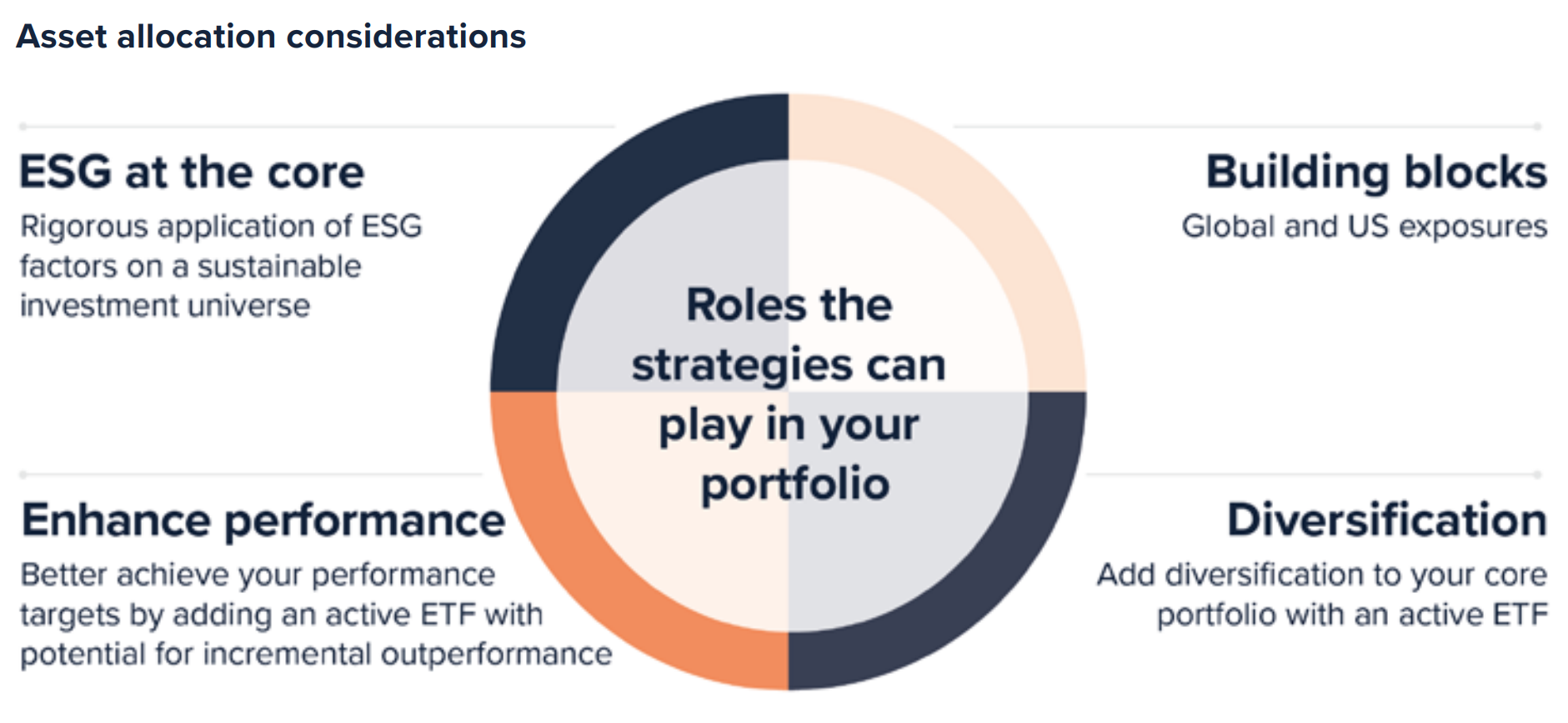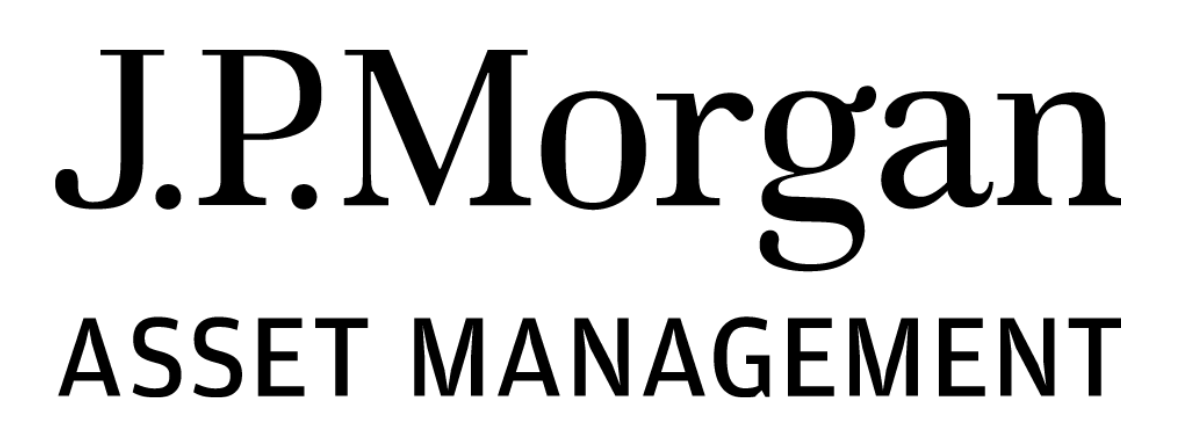J.P. Morgan Asset Management’s Research Enhanced Index (REI) investment process has been refined over 30 years, aiming to combine the best qualities of passive – index-like regional, sector and style exposures – with active management.
Since launching the first REI strategy in the ETF wrapper in October 2018, the range has grown into one of the biggest active UCITS equity ETF strategies, with eight regional exposures and assets under management of over $8bn.
Research Enhanced Indexing: The best of both worlds
The REI process is simple but powerful. The objective is to translate our stock-specific insights into our REI portfolios while keeping an index-like structure. We do so by combining best-in-class fundamental research with robust risk management. We have a large team of career analysts who carry out in-depth research on over 2,500 stocks, leveraging a disciplined valuation framework, which is used across the whole firm.
These insights are then packaged into an index-like portfolio by applying small overweight or underweight positions in certain stocks. The end result is a style-neutral, sector-neutral and regionally neutral ETF portfolio, which has the same shape and feel as the index.
The use of ETFs which consider environmental, social and governance (ESG) factors has been growing in popularity among investors, with 60% of total UCITS ETF flows in 2022 going into ESG-focused ETFs, according to Bloomberg, as at 31 December 2022.
Our REI ETFs have also been part of this evolution of ESG investing. The assessment of ESG factors has been part of the REI strategy for decades. We believe that active management has a distinct advantage when investing sustainably. The market also appears to see the benefits of active ESG ETFs, with over 60% of participants from the 2023 Trackinsight survey stating they use solely active or a combination of active and passive approaches to invest in ESG ETFs.
The evolution of ESG
Our established REI ETFs use a robust ESG framework to integrate the insights of our fundamental research analysts who assess companies based on 40 ESG-related questions.
We then engage with the companies that we invest in on an ongoing basis to discuss ESG issues.
Recently, as part of the evolution of ESG across our ETF offering, we launched a new range of socially responsible investing (SRI) REI ETFs, for investors who want sustainability front and centre of their core investments. This range of ETFs uses the same REI investment process but with one important differentiation.
While our traditional REI range uses an ESG framework to take active positions against traditional benchmarks, like the MSCI World or S&P 500, our new ETFs have bespoke sustainable benchmarks. From the traditional base index, industries such as fossil fuels, weapons and tobacco are excluded.
There is then a further selection of securities to ensure that index constituents’ greenhouse gas emissions are at least 50% lower than the wider investable universe and that carbon intensity is reduced by 7% each year. This process enables the index to meet the EU’s Paris-Aligned Benchmark (PAB) criteria. The result is an index that has a smaller, but more sustainable investment universe. For example, the MSCI World index includes approximately 1,500 stocks while the bespoke SRI and PAB version will only have 600-700 stocks.
This is where the portfolio manager’s work begins. Using the REI process, we take small overweight and underweight positions against this bespoke index, informed by our fundamental research. The process involves constantly monitoring these positions and engaging with the companies held.
Portfolio allocation considerations
The new sustainable REI ETFs provide clients with core portfolio building blocks in global or US equities. The objective of these portfolios is to achieve a consistent performance above the benchmark over time, potentially enhancing the performance of a client’s portfolio.
Diversification is another key aspect, with these ETFs complementing existing investments a client may already have in sustainable ETFs.
Finally, given the emphasis of ESG characteristics in the portfolios, they could be used for clients who want to make ESG considerations a central focus of their investments.

We believe our sustainable ETFs can offer investors efficient exposure to a portfolio of companies with genuine ESG characteristics, while also aiming to provide an attractive return.
This article was first published in ESG Unlocked: Is it time to draw the curtain on 'ESG'?, an ETF Stream report. To read the full report, click here.
For Professional Clients / Qualified Investors only – not for Retail use or distribution.
This is a marketing communication and as such the views contained herein do not form part of an offer, nor are they to be taken as advice or a recommendation. The value of investments and the income from them may fluctuate in accordance with market conditions and taxation agreements and investors may not get back the full amount invested. Past performance is not a reliable indicator of current and future results. There is no guarantee that any forecast made will come to pass. Investment decisions shall solely be made based on the latest available Prospectus, the Key Information Document (KID), any applicable local offering document and sustainability-related disclosures, which are available in English from your J.P. Morgan Asset Management regional contact or at www.jpmorganassetmanagement.ie. A summary of investor rights is available in English at https://am.jpmorgan.com/lu/investor-rights. J.P. Morgan Asset Management may decide to terminate the arrangements made for the marketing of its collective investment undertakings. Purchases on the secondary markets bear certain risks, for further information please refer to the latest available Prospectus. Our EMEA Privacy Policy is available at www.jpmorgan.com/emea-privacy-policy. This communication is issued in Europe (excluding UK) by JPMorgan Asset Management (Europe) S.à r.l. and in the UK by JPMorgan Asset Management (UK) Limited, which is authorised and regulated by the Financial Conduct Authority. In Switzerland, JPMorgan Asset Management Switzerland LLC (JPMAMS), Dreikönigstrasse 37, 8002 Zurich, acts as Swiss representative of the funds and J.P. Morgan (Suisse) SA, Rue du Rhône 35, 1204 Geneva, as paying agent. With respect to its distribution activities in and from Switzerland, JPMAMS receives remuneration which is paid out of the management fee as defined in the respective fund documentation. Further information regarding this remuneration, including its calculation method, may be obtained upon written request from JPMAMS.
09i2232308101356



